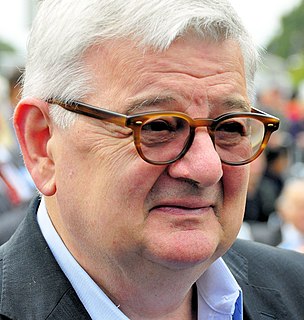A Quote by W. E. B. Du Bois
My autobiography is a digressive illustration and exemplification of what race has meant in the world in the 19th and 20th centuries.
Quote Topics
Related Quotes
I was really interested in 20th century communalism and alternative communities, the boom of communes in the 60s and 70s. That led me back to the 19th century. I was shocked to find what I would describe as far more utopian ideas in the 19th century than in the 20th century. Not only were the ideas so extreme, but surprising people were adopting them.
In every major war we have fought in the 19th and 20th centuries. Americans have been asked to pay higher taxes - and nonessential programs have been cut - to support the military effort. Yet during this Iraq war, taxes have been lowered and domestic spending has climbed. In contrast to World War I, World War II, the Korean War and Vietnam, for most Americans this conflict has entailed no economic sacrifice. The only people really sacrificing for this war are the troops and their families.
By comparison, 'The Secret Agent' is not especially prescient about terrorism, certainly not technically. The Professor was a stock figure of Edwardian fiction, and his dreams of mass destruction were nothing ahead of their time. Many novels in the late 19th and early 20th centuries involved plots far more deadly.





































